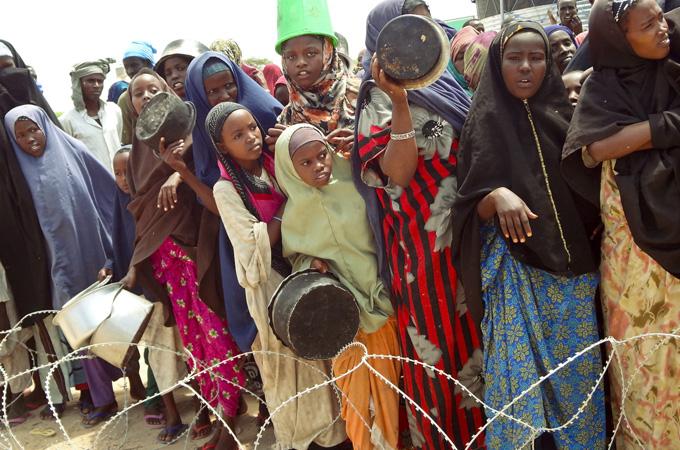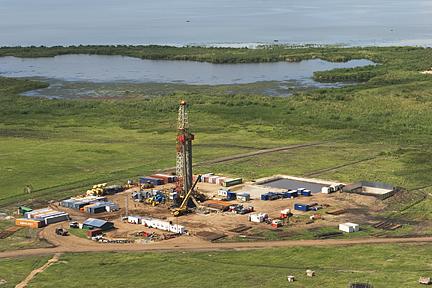Somalia’s Famine: Never again, again – By Jamie Drummond, Exec Director, ONE

 It’s over a month since famine was declared in Somalia and alarm bells clearly rung about serious food shortages across Northern Kenya and Southern Ethiopia. 12 million people in the Horn of Africa are in desperate need of food, clean water and basic sanitation and we are all asking: how can this be happening again? In this past month we have seen differing responses locally, regionally and globally to the crisis. Already there are lessons we must learn about how to stop famine happening again.
It’s over a month since famine was declared in Somalia and alarm bells clearly rung about serious food shortages across Northern Kenya and Southern Ethiopia. 12 million people in the Horn of Africa are in desperate need of food, clean water and basic sanitation and we are all asking: how can this be happening again? In this past month we have seen differing responses locally, regionally and globally to the crisis. Already there are lessons we must learn about how to stop famine happening again.
As Richard Dowden noted previously on this blog there are many political factors that complicate the situation in Somalia. Any lasting solution will require a regional roadmap out of the Somali cycle of failed statism. Eritrea and others must be brought around a table with other regional governments, and representatives from wide cross section of Somali civil society. Maybe this famine will reenergise the too often stalled process. However politics is not the only factor here and there are other lessons to learn.
The response from the international community has been slow. As my colleague Adrian Lovett explained, in a recent Huffington Post blog, leaders such as the UK, US and Sweden have made substantial contributions to the appeal but other governments languish behind. The UN appeal remains $1 billion short of what is needed. Traditional European donors such as France and Germany are not pulling their weight. Nor are many of the Gulf States who have tremendous wealth generated from high oil prices and could fill the appeal gap with ease. That these global players drag their feet while children die is shameful, though the recent pledge from the Organisation of Islamic Cooperation to the Somalia appeal is a step in the right direction.
The response from Africa has been mixed. Last month ONE and Africa Gathering hosted an informal discussion with African diaspora leaders and international NGOs about the adequacy of the response to the crisis. The participants called for African leaders to step up more to lead the response. African countries and institutions including South Africa, the African Union (AU) and Kenya are contributing and yesterday’s AU pledging conference was unprecedented and raised a decent sum – though some nations could still do more. Donations from many African governments – Nigeria for example – or wealthy individuals have been modest. Africa has a number of billionaires these days as the advocates of the “˜Africa rising’ narrative rightly keep reminding us. African civil society also has a crucial role to play. Influential figures, not just from faith communities but also from the artistic, musical and sports world have real sway over the youth. The group AfricansAct4Africa is already bringing together many musicians and artists to bring attention to this issue, and leaders like Youssou N’Dour and Somalia’s own hip hop artist K’Naan are leading a new generation of African artists in this effort. This is a hugely positive development.
This is an assessment of the emergency response but if we are to stop starvation returning we must find long-term solutions. The famine early warning system should have been noted earlier higher up the political food chain. Plainly it is media attention that gets political attention, and the media only tune in once the images are shocking enough – which is too late. Any review of this crisis has to factor in the role of the international media as watchdog in these situations and help them play a more proactive role. I could imagine an emergency-prevention TV team charged with finding ways to tell the stories of slow-burning crises for prime time, in ways the audience won’t tune out but before the children start dying. This may seem far-fetched but it’s a creative challenge many in the media industries might relish. Call it a global community service for recovering media hacks.
Long-term investment in agriculture is also vital. At L’Aquila in 2009, G8 leaders promised $22 billion to agricultural development but with just one year to go until the deadline only a fifth of the money has been delivered. African governments also made pledges at Maputo in 2003 to invest 10% of their budgets on agriculture. So far only seven African nations have kept the promise, including Ethiopia. This is part of the reason why the situation in Ethiopia while very serious, is not as bad as it could be, or as bad as it was back in the early 1990s or mid 1980s. If we are to prevent future droughts becoming future famines long term investment in farming and food security infrastructure across the continent is essential.
The famine we see today was avoidable but it could also have been even worse. While it is too late for tens of thousands of children, there are hundreds of thousands more who need our help right now. We can’t just blame politics for their fate while sitting by and doing nothing. We must deal with the politics embedded into the way we deal with the crisis – the local issues that turn drought into famine, the regional complexities that make response slow and difficult, and the global neglect that means promises are rarely kept. We must learn these lessons and in the name of those who have died, declare this time for real: never again.
Jamie Drummond is Executive Director, ONE





[…] This blog post originally appeared on AfricanArguments.org […]
[…] This blog post originally appeared on AfricanArguments.org […]
[…] This blog post originally appeared on AfricanArguments.org […]